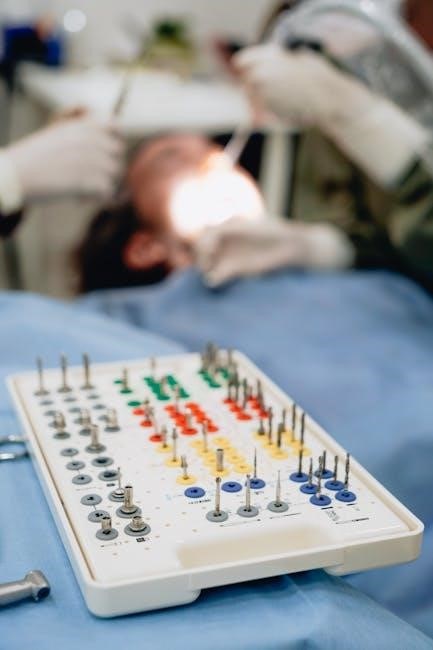Immediate Post-Surgery Care
Apply ice packs to the surgical area for the first 48 hours‚ 20 minutes on and 10 minutes off․ Limit activities‚ rest‚ and avoid spitting or using straws to protect the blood clot․ Monitor for excessive bleeding and contact your dentist if concerns arise․
Managing Swelling and Pain
Apply ice packs to the surgical area to reduce swelling‚ using them 20 minutes on and 10 minutes off for the first 48 hours․ Take prescribed pain relief medication as directed to manage discomfort․ Gently rinse with salt water starting the day after surgery to promote healing․ Monitor pain levels and contact your dentist if severe pain persists or worsens‚ as this could indicate complications․
Bleeding and Blood Clot Formation
Some bleeding is normal after surgery․ Avoid spitting‚ using straws‚ or poking the surgical site‚ as this can dislodge the blood clot․ Gently rinse with salt water starting the day after surgery to keep the area clean without disturbing the clot․ Contact your dentist immediately if heavy bleeding occurs or persists beyond a few days‚ as this may indicate a complication requiring attention․
Oral Hygiene Practices
Good oral hygiene is essential for healing․ Start rinsing with salt water the day after surgery and use Corsodyl mouthrinse twice daily to maintain cleanliness and promote healing․
Rinsing with Salt Water
Start rinsing with warm salt water the day after surgery to reduce swelling and kill bacteria․ Dissolve 1 teaspoon of salt in 8 ounces of warm water․ Gently rinse the surgical area 2-3 times daily‚ especially after meals‚ to keep it clean․ Avoid vigorous rinsing to prevent dislodging the blood clot․ This simple practice promotes healing and maintains oral hygiene without causing irritation or complications․
Using Corsodyl Mouthrinse
Start using Corsodyl mouthrinse the day after surgery to reduce the risk of infection and promote healing․ Use it twice daily‚ after breakfast and before bed․ Gently swish the rinse around the surgical area for 30 seconds before spitting it out․ Do not rinse vigorously to avoid dislodging the blood clot․ This helps maintain a clean environment for proper recovery and minimizes complications․
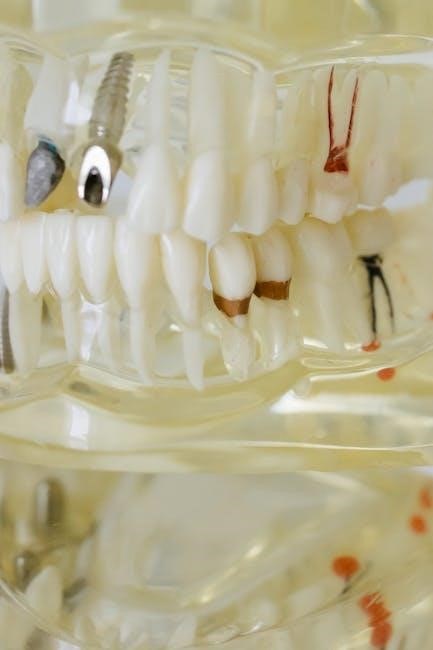
Dietary Recommendations
After dental implant surgery‚ stick to soft‚ nutritious foods like yogurt‚ soups‚ and mashed vegetables․ Avoid hard‚ crunchy‚ or spicy foods that could disrupt healing․
Soft Foods to Eat
Opt for soft‚ nutritious foods such as scrambled eggs‚ yogurt‚ mashed potatoes‚ and smooth soups․ These foods are gentle on the surgical site and promote healing․ Avoid chewing directly over the implant area․ Incorporate protein-rich foods like soft-cooked meats or fish to support recovery․ Ensure meals are balanced to maintain strength and overall health during the healing process․
Foods to Avoid
Avoid hard‚ crunchy‚ or sharp foods that could disrupt the implant site or dislodge the blood clot․ Refrain from consuming spicy‚ acidic‚ or excessively hot foods and beverages‚ as they may irritate the surgical area․ Skip nuts‚ chips‚ raw vegetables‚ and tough meats during the initial healing phase․ These foods can cause discomfort or complications‚ such as dry socket‚ and hinder proper recovery․ Stick to soft‚ gentle options to support healing․
Smoking and Alcohol
Smoking can dislodge blood clots‚ delaying healing․ Avoid alcohol to prevent complications and ensure proper recovery‚ especially during the initial healing phase․
Why Smoking is Harmful
Smoking is harmful after dental implant surgery as it dislodges blood clots‚ delaying healing․ It reduces blood flow‚ impairing the recovery process‚ and introduces toxins that can lead to infections․ Smoking increases the risk of implant failure and prolongs healing times․ Quitting smoking is crucial for proper healing and to avoid post-operative complications․
Alcohol Consumption Guidelines
Avoid alcohol for at least 24-48 hours after surgery‚ as it can impair healing and interact with pain medications․ Excessive consumption prolongs recovery and increases the risk of complications․ Alcohol can irritate the surgical site‚ leading to discomfort and delayed healing․ Moderation is key‚ and complete avoidance is recommended during the initial healing phase to ensure proper recovery and prevent post-operative issues․
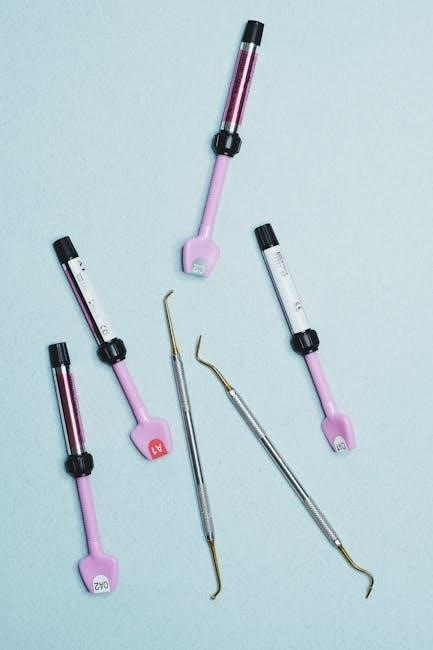
Medication Instructions
Take prescribed pain relievers as directed to manage discomfort․ Complete the full course of antibiotics to prevent infection․ Avoid exceeding recommended dosages and consult your dentist if reactions occur․
Prescribed Pain Relief
Take prescribed pain relievers as directed to manage post-surgery discomfort․ These medications help reduce swelling and alleviate pain during the initial healing phase․ Avoid exceeding recommended dosages and consult your dentist if side effects occur․ Pain management is crucial for a comfortable recovery and ensures proper healing of the implant site․ Follow instructions carefully to optimize results and minimize risks․ Adhere to the prescribed schedule for best outcomes․
Antibiotics for Infection Prevention
Take prescribed antibiotics exactly as directed to minimize the risk of infection after surgery․ These medications are crucial for preventing bacterial growth around the implant site․ Complete the full course‚ even if symptoms improve‚ to ensure effectiveness․ Avoid missing doses and contact your dentist if side effects occur․ Proper antibiotic use supports healing and helps prevent complications‚ ensuring the long-term success of your dental implant․
Healing and Monitoring
The body’s natural healing process begins immediately after surgery‚ with the implant integrating over time․ Monitor for infection signs‚ swelling‚ or unusual symptoms‚ and contact your dentist if they persist․
Normal Healing Process
The healing process after dental implant surgery is natural and progressive․ Swelling and pain typically subside within a few days‚ while the implant integrates with the jawbone over time․ Proper oral hygiene practices‚ such as rinsing with salt water or prescribed mouthwashes‚ support healing․ Follow post-op instructions carefully to avoid complications․ Monitor for unusual symptoms‚ and contact your dentist if concerns arise․
Signs of Complications
Excessive bleeding‚ severe pain‚ or swelling that worsens after 3-4 days may indicate complications; Other signs include fever‚ redness‚ or pus around the implant site․ If the implant feels loose or unstable‚ or if you experience numbness or tingling in the face‚ contact your dentist immediately․ These symptoms could signal infection‚ improper healing‚ or implant failure‚ requiring prompt professional attention․
Follow-Up Care
Regular follow-ups ensure proper healing and implant integration․ Attend scheduled appointments for suture removal and progress monitoring to guarantee optimal recovery and long-term success․
Importance of Post-Op Check-Ups
Post-operative check-ups are crucial for ensuring proper healing and implant success․ These visits allow your dentist to monitor osseointegration‚ remove sutures‚ and address any concerns early․ Regular follow-ups help prevent complications and ensure the implant integrates seamlessly with your jawbone‚ promoting long-term stability and functionality․ Consistency in these appointments is key to achieving optimal results and maintaining your oral health․
When to Contact Your Dentist
Contact your dentist immediately if you experience heavy bleeding‚ severe pain‚ swelling‚ or signs of infection such as fever or redness․ If the implant feels loose or shifts‚ seek attention promptly․ Persistent bad taste or discharge also warrants a call․ Timely communication ensures early intervention‚ preventing complications and supporting a smooth recovery process․
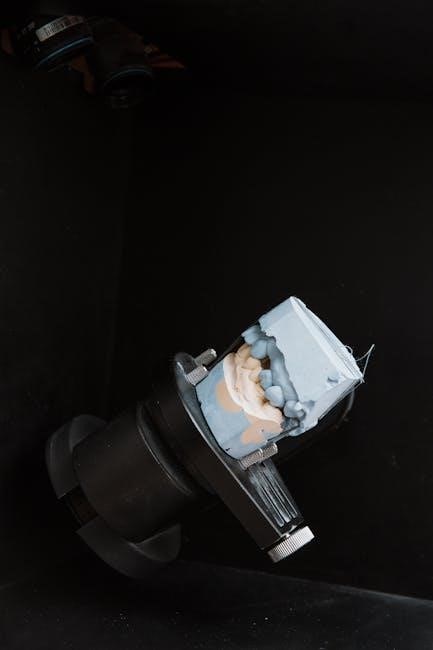
Returning to Normal Activities
Resume normal activities gradually‚ avoiding strenuous tasks․ Follow your dentist’s guidance to ensure proper healing and prevent complications․ Avoid actions that may dislodge the blood clot․
Resuming Daily Activities
Resume normal activities gradually‚ avoiding strenuous tasks for 2-3 days․ Avoid bending‚ heavy lifting‚ or physical exertion that may dislodge the blood clot․ Refrain from smoking or using straws‚ as suction can disrupt healing․ Return to work or light exercise as comfort allows‚ but consult your dentist before resuming intense activities․ Adhere to post-op instructions to ensure proper healing and avoid complications․
Physical Activity Guidelines
Avoid strenuous activities‚ heavy lifting‚ or bending for 2-3 days post-surgery․ Light walking or gentle exercises are acceptable if comfortable․ Refrain from actions that may dislodge the blood clot‚ such as intense sports or vigorous movements․ Smoking and using straws should be avoided to prevent suction-related complications․ Follow these guidelines to ensure proper healing and minimize the risk of post-operative issues․
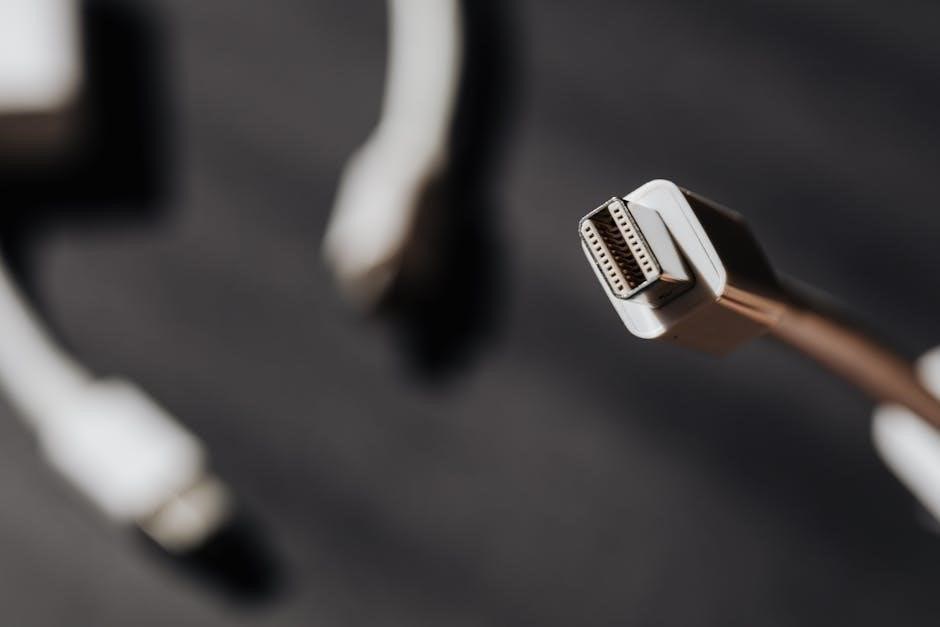
Long-Term Oral Hygiene
Regular brushing with a soft toothbrush and flossing around implants is crucial․ Schedule routine dental cleanings to maintain implant health and prevent plaque buildup․
Caring for Your Dental Implant
Proper care involves daily brushing with a soft toothbrush and gentle cleansers․ Flossing around the implant is essential to remove plaque․ Regular dental visits ensure long-term stability and prevent complications․ Avoid using abrasive products that could damage the implant surface; Maintaining good oral hygiene prevents infections and supports the implant’s integration with the jawbone for a durable‚ natural-looking result․
Maintaining Good Oral Hygiene
Rinse with salt water daily to promote healing and reduce bacteria․ Starting from day two‚ use Corsodyl mouthwash twice a day to prevent infection․ Gently brush the implant with a soft toothbrush‚ avoiding harsh products․ Regular flossing around the implant ensures plaque removal․ Proper hygiene supports implant integration and prevents complications‚ fostering a healthy‚ stable restoration․
Proper care after dental implant surgery is crucial for healing and long-term success․ By following post-operative instructions‚ avoiding smoking and alcohol‚ and maintaining good oral hygiene‚ you ensure optimal recovery․ Attending follow-ups and monitoring for complications are key to a smooth process․ With adherence to guidelines‚ dental implants can function like natural teeth‚ restoring your smile and confidence for years to come․
